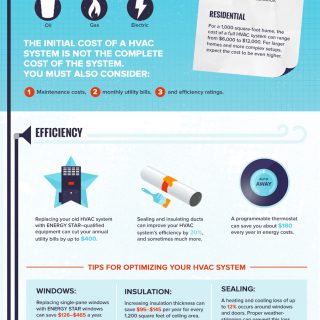The Future Of Home Home Heating - Exactly How Heatpump Modern Technology Is Advancing
The Future Of Home Home Heating - Exactly How Heatpump Modern Technology Is Advancing
Blog Article
Team Author-Dawson McCormick
Heatpump will certainly be an essential modern technology for decarbonising home heating. In a circumstance regular with federal governments' introduced power and environment dedications, their worldwide capacity doubles by 2030, while their share in heating rises to one-quarter.
They work best in well-insulated homes and count on power, which can be supplied from an eco-friendly power grid. Technological innovations are making them more effective, smarter and less expensive.
Fuel Cells
Heatpump use a compressor, refrigerant, coils and fans to move the air and warmth in homes and appliances. They can be powered by solar power or electricity from the grid. They have actually been obtaining appeal because of their low cost, silent procedure and the ability to produce electrical energy during peak power need.
Some companies, like IdaTech and BG MicroGen, are working on gas cells for home heating. These microgenerators can change a gas central heating boiler and create several of a house's electrical needs with a link to the electricity grid for the remainder.
Yet there are factors to be cynical of using hydrogen for home heating, Rosenow claims. It would certainly be pricey and ineffective compared to various other technologies, and it would certainly add to carbon exhausts.
Smart and Connected Technologies
Smart home modern technology enables home owners to link and control their gadgets remotely with the use of smartphone apps. As an example, wise thermostats can learn your heating choices and immediately get used to maximize energy consumption. Smart lighting systems can be managed with voice commands and instantly shut off lights when you leave the area, reducing power waste. And wise plugs can monitor and manage your electrical usage, enabling you to identify and restrict energy-hungry devices.
The tech-savvy home depicted in Carina's meeting is a great picture of exactly how owners reconfigure area home heating techniques in the light of brand-new smart home modern technologies. They depend on the gadgets' automated functions to execute day-to-day changes and concern them as a practical methods of performing their home heating methods. Because of this, they see no reason to adjust their practices additionally in order to make it possible for flexibility in their home power demand, and interventions focusing on doing so might encounter resistance from these homes.
Electrical power
Because warming homes accounts for 13% of US emissions, a switch to cleaner options could make a large difference. However the technology encounters challenges: It's costly and needs substantial home renovations. And Click Webpage 's not constantly compatible with renewable energy resources, such as solar and wind.
Till lately, electric heat pumps were also expensive to compete with gas versions in a lot of markets. But brand-new technologies in style and products are making them much more economical. And better cold climate performance is enabling them to function well also in subzero temperatures.
The following step in decarbonising home heating might be the use of warmth networks, which draw heat from a main source, such as a close-by river or sea inlet, and disperse it to a network of homes or buildings. https://www.consumerreports.org/air-filters/best-hvac-filters-for-dealing-with-wildfire-smoke-in-your-home-a6320371714/ would certainly lower carbon exhausts and enable homes to capitalize on renewable energy, such as eco-friendly power from a grid provided by renewables. This alternative would be much less expensive than switching to hydrogen, a fossil fuel that calls for new infrastructure and would only reduce carbon dioxide discharges by 5 percent if paired with enhanced home insulation.
Renewable resource
As electricity prices drop, we're starting to see the same fad in home heating that has driven electric automobiles into the mainstream-- yet at an even much faster speed. The solid climate instance for impressive homes has actually been pushed better by new research study.
Renewables represent a substantial share of modern-day warmth usage, yet have actually been provided restricted policy focus internationally contrasted to various other end-use fields-- and even much less attention than electricity has. Partially, this reflects a mix of consumer inertia, split motivations and, in numerous countries, subsidies for fossil fuels.
New modern technologies can make the change simpler. For example, heat pumps can be made much more power effective by replacing old R-22 cooling agents with brand-new ones that don't have the high GWPs of their predecessors. Some professionals additionally imagine district systems that attract heat from a close-by river or sea inlet, like a Norwegian arm. The cozy water can after that be utilized for heating and cooling in a neighborhood.